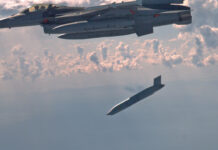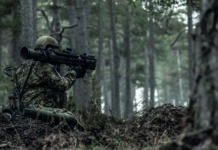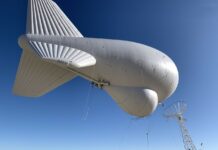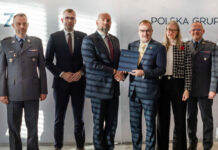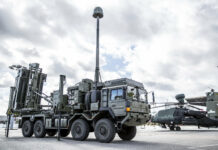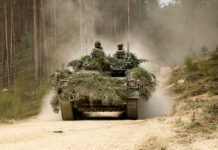In the second half of June this year, Polish soldiers left Afghanistan after a 20-year presence in the country. We joined the NATO operation according to Article 5 of the Washington Treaty in the aftermath of the terrorist attacks on September 11 2001. US-led forces then ousted the Taliban from power in Afghanistan. 20 years later, we left the country giving the opportunity to the Taliban to return to power.
Some politicians in my country say that “Everything has changed and nothing has changed”. But we use this expression to describe intentional action, to do a lot in order to bring things back to their previous state. Intentional… though the US and NATO achieved the same result, unintentionally. 20 years of blood and sweat of NATO soldiers, and no result for Afghanistan – a waste of NATO lives and resources.
Polish Viewpoint
However, there is the other side of this coin to consider. The Polish armed forces leaving Afghanistan are completely different than in 2001. Then we were unprepared for missions like that. Without the right equipment needed for peace-keeping missions, without any wide-ranging experience or cooperation with other NATO armies. We had been NATO members for only two years (with some adapting period, however). Our engagement in Afghanistan gave us an opportunity and stimulated us to improve procedures, training and equipment.
That was our lesson to learn, which we did – sometimes not perfectly, but overall, effectively. We integrated with US and NATO forces in joint combat operations, collected experience in international military operations, and became familiar with the utilisation of UAVs. We have improved the equipment of our forces such as the wheeled fighting vehicle ROSOMAK – which provided the highest level of Improvised Explosive Devices crew protection compared to all other NATO vehicles in Afghanistan.
Poland paid a huge price for this lesson. A total of 44 Polish soldiers lost their lives in Afghanistan. During the last days of August, all eyes were focused on Kabul. The great evacuation, or the great escape rather, could not be fully controlled by NATO soldiers. Some commentators have compared the situation to Saigon and the US embassy evacuation in April 1975. For me, it was rather similar to Dunkirk in June 1940, but this time, it was not military, but civilian personnel being evacuated. Similar to British Prime Minister Winston Churchill after the Dunkirk evacuation, US President Joe Biden also announced to the world that the mission had been a success.
Wider Lessons
Of course, saving thousands of lives in a situation like this can be considered a success, but why did the US have to evacuate people in such a way. Wrong decisions were made earlier. Soldiers leaving before civilian personnel, when the Taliban were quickly capturing the country, province by province, created all these problems later on.
Shortly before NATO soldiers left Afghanistan, some European NATO leaders such as Boris Johnson, pressured the US President to stay longer, but the scheduled end-date was not changed. This situation has shown the weakness of European NATO members. We can do nothing without the US. The potential of European NATO countries is not adequate even for our own ambitions. We are not even able to provide protection for our countries by ourselves.
In time, the US will withdraw from conflicts, probably in order to prepare for the impending rivalry with China. But Russia, which was the reason why NATO was established in the first place, will not be a US priority. It means that we need to improve our own defence potential – and that is another Afghan lesson.
Consequences
For us in Poland, the decision by the US President to waive sanctions against the Nord Stream 2 pipeline linking Russia and Germany represents another signal to seriously improve our defence capabilities. The Polish Government has started a modernisation programme with the purchase of BAYRAKTAR TB2 UAVs and ABRAMS tanks. The next decisions are expected soon.
The Washington administration is facing a crisis of confidence over Afghanistan. Russia and China will use this opportunity to test where the limits of US acceptance lie for future provocative actions. One of those places can be Eastern and Central Europe. This is also a post-Afghan lesson which we have to implement in the near future – to be prepared.




